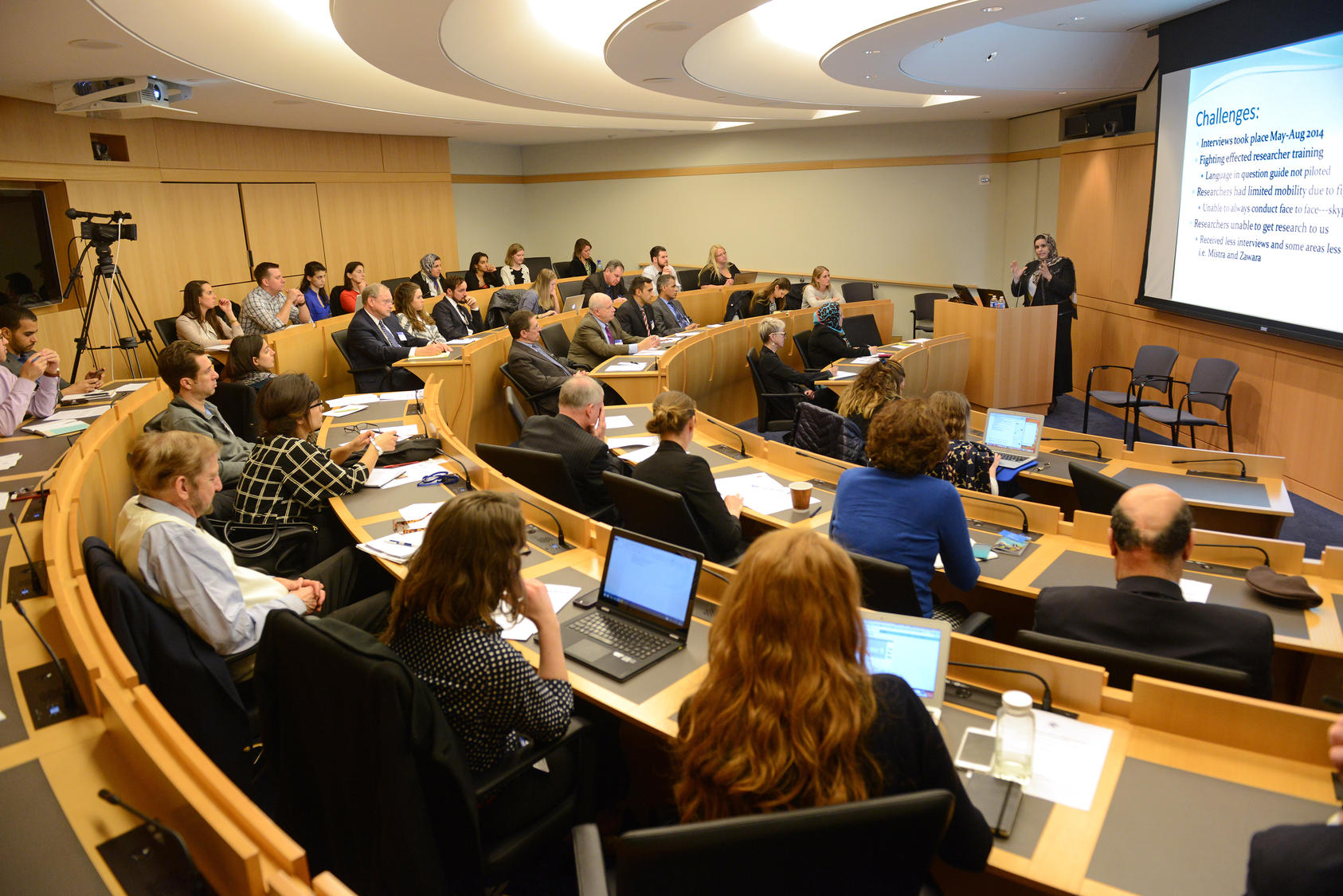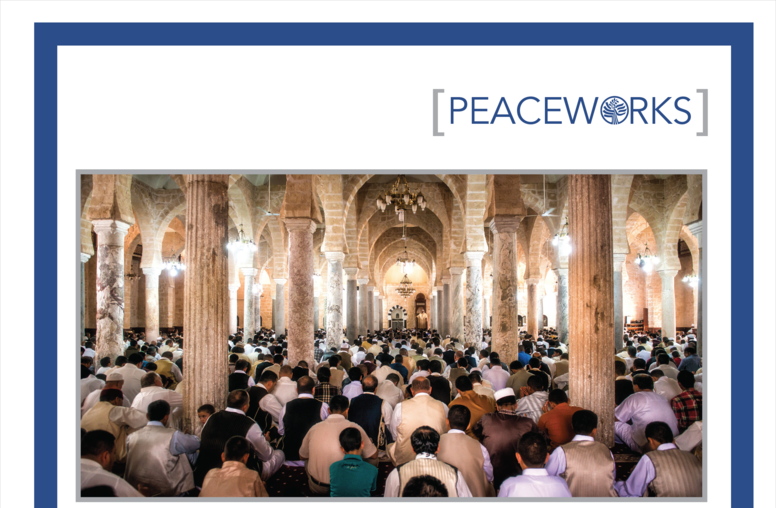Diplomats and peace practitioners often cite lack of familiarity with the religious landscape as a barrier to their engagement of religious actors. In 2013, USIP launched an initiative to address this need by developing a methodology for systematically mapping and assessing the religious sector’s influence on conflict and peace dynamics in discrete conflict settings. These mappings, which have been done or are underway in Libya, South Sudan, Iraq and Burma, help illuminate recommendations for effective partnerships within the religious sector for peacebuilding.

While the peacebuilding field now recognizes the importance of engaging religious ideas, practices, actors, and institutions to manage violent conflict and build peace, a great deal of uncertainty remains about how to do so strategically and sensitively. Peacebuilding practitioners and diplomats are often unsure how to tailor their trainings and/or engagement to fully tap into the influence of religious actors in peacebuilding, or they are anxious about navigating what can seem a complex, dynamic, and confusing religious landscape. These uncertainties and discomfort lead many to fail to engage the religious sector, or to do less strategically or counter-productively, eliciting unintended negative consequences.
USIP’s Religious Landscape Mapping in Conflict-Affected States initiative responds to this need. The initiative seeks to ensure peace practitioners feel greater comfort navigating and engaging within the religious landscape in efforts to build peace. The objectives of each mapping are as follows:
- Identify the religious sector’s current and potential impact on conflict and peace dynamics in a country setting, with particular attention to mapping key religious actors, institutions, and narratives and their influence on broader political, social, and economic drivers of conflict, intra- and inter-religious dynamics, as well as the relationships between religious and state actors and institutions.
- Analyze the lessons learned from current religious engagement in peacebuilding and formulate detailed policy and practice recommendations for the design and implementation of future peace programming.
USIP’s mapping and assessment methodology tool enables USIP’s country teams and our peacebuilding partners to produce policy and practice reports that help policy makers and practitioners better understand the opportunities, best methods and potential challenges to navigating and partnering within the religious landscape in specific conflict contexts. Each report makes recommendations of ways that encourage the effective integration of religious actors into current and new field programming, while also producing research findings that can inform the wider field of policymaking, peacebuilding and scholarship. Significant portions of our mappings are shared publicly in USIP reports, blog posts and events.
To date, the religious landscape has been mapped in Libya using USIP’s methodology. USIP is currently undertaking mappings in Burma and Iraq.
USIP’s Religion and Peacebuilding team held a public event on March 16, 2015 featuring Zahra Langhi from the Libyan Women’s Platform for Peace. At the event, USIP Senior Program Officer Palwasha Kakar and Ms. Langhi offered an overview of the assessment/mapping of Libyan religious actors’ and institutions’ impact on conflict and peace dynamics in Libya.
Featured Reports

The Religious Landscape in Myanmar’s Rakhine State
This Peaceworks report maps the religious landscape of Myanmar’s Rakhine State, focusing in particular on the current and potential influence of religion in peace and reconciliation efforts. Part of a broader USIP initiative to map the religious landscape in conflict-affected environments, it presents key findings and offers recommendations to enable policymakers and peacebuilding practitioners to better navigate and engage within Rakhine’s religious landscape.

The Religious Landscape in South Sudan: Challenges and Opportunities for Engagement
Since the beginning of South Sudan's civil war in 2013, the country's religious actors have sought to play an active role in turning the tide from war and violence to peace and reconciliation. Drawing on interviews, focus groups, and consultations, this report maps the religious landscape of South Sudan and showcases the legitimate and influential religious actors and institutions, highlights challenges impeding their peace work, and provides recommendations for policymakers and practitioners to better engage with religious actors for peace.

Libya’s Religious Sector and Peacebuilding Efforts
Derived from two surveys conducted in Libya in 2014 and 2016, this report strives to heighten understanding of the country’s religious sector and its impact on governance and society. The findings—which are bolstered by the local knowledge of Libyan researchers—map the major religious trends, institutions, and actors in the country to describe how Libyans perceive the contribution of the religious sector to building peace and fostering justice and democracy.






